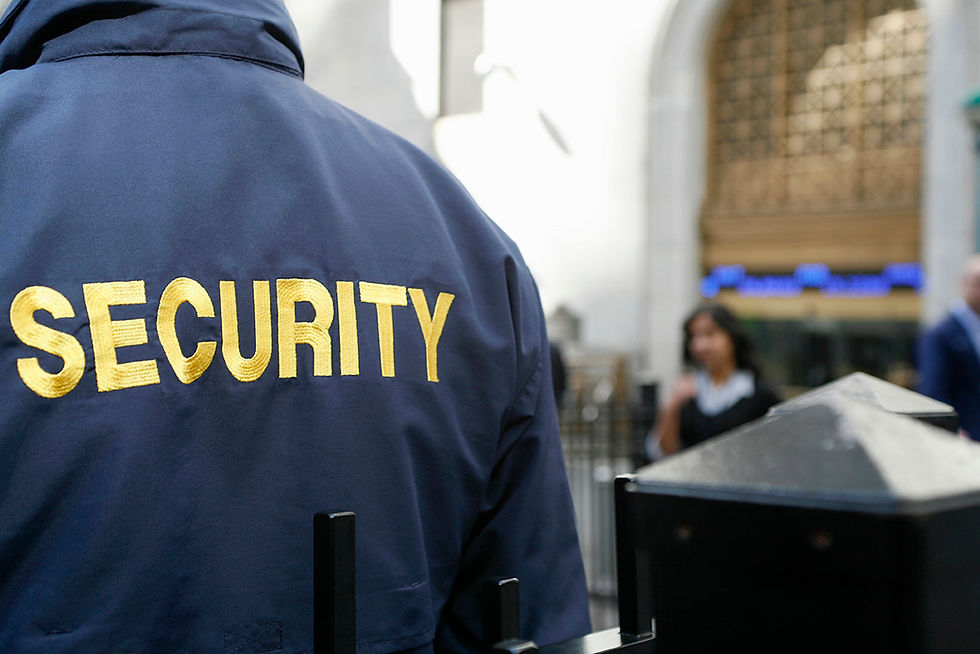From Vagrancy to Violence, Why Cleaning the Streets Reduces More Than Litter
- Sam Wilks

- May 19, 2025
- 3 min read

The first sign that a public space is in decline isn’t the robbery, the assault, or the stabbing. It’s the open vagrancy. The unchecked loitering. The drug paraphernalia and empty liquor bottles beside the footpath. The makeshift camps outside the retail strip. The slow normalisation of disorder disguised as compassion.
And yet, we are told, by activists, bureaucrats, and social policy theorists, that to remove the donga’s, enforce trespass laws, or relocate a repeat offender is somehow cruel. That tolerating vagrancy is an act of inclusion. That not intervening is more “equitable.” But those of us tasked with securing properties, protecting workers, and preserving public order know a different truth, where vagrancy takes root, violence soon follows.
This is not a hypothesis. It is a daily operational fact observed across Australia’s business districts, transport terminals, parks, and shopping precincts. The longer a site tolerates unlawful occupation, visible drug use and alcoholism, and public decay, the faster it descends into criminal activity. First, it’s litter and syringes. Then it’s theft and intimidation. Eventually, it’s assaults, often with weapons.
There is no mystery in this progression. Disorder emboldens those who thrive on it. A street corner that signals abandonment becomes a marketplace for dysfunction. And the offender learns that boundaries, like garbage bags, will not be enforced.
The failure is not logistical, it’s philosophical. We’ve traded clarity for confusion. We no longer ask what works, we ask how it feels. We no longer prioritise safety, we prioritise sentiment. And the result is predictable. Streets that are neither safe nor humane, only dangerous and dirty.
Enforcing loitering laws, moving on trespassers, and maintaining visible order are not acts of cruelty, they are the bare minimum required to prevent further harm. They reclaim the public square for its intended users, the contributors, the worker, the commuter, the family, the child. And yet, such acts are increasingly resisted by those who mistake indulgence for kindness.
From a security professionals’ point of view, environments of disorder send a loud and unmistakable message, this area is unguarded. And those drawn to criminal opportunity, whether drug dealers, predators, or violent offenders, read that message with precision.
The cleaner the street, the lower the threat. Not because aesthetics matter to criminals, but because cleanliness signals control. A place that is maintained is a place that is watched. And a watched place is a dangerous one, for those who seek to harm.
It’s no accident that the most successful suburban renewal projects around the world start not with speeches, but with sanitation. Not with community roundtables, but with cleanups, evictions, enforcement, and order. There is no safe path to rehabilitation that runs through public lawlessness. There is no justice in allowing chaos to fester for the sake of optics.
The data confirms what security teams already know, incidents of theft, assault, and harassment decline significantly in areas where vagrancy is addressed proactively. Where laws are enforced, cameras installed, lighting maintained, and officers patrol, criminal behaviour decreases, not because society becomes “more equitable,” but because bad actors lose the freedom to operate.
Critics will argue that homelessness is not a crime. They’re right. But trespassing is. Threatening store owners is. Harassing passersby, urinating in public, indecent exposure, using drugs on-site, all of these are crimes, and all of them flourish when we treat vagrancy not as a gateway to risk but as a protected condition.
Compassion is not weakness. But real compassion does not tolerate environments that breed harm. It removes the vulnerable from harm’s way and removes the harmful from proximity to the vulnerable. Anything less is not progressive, it’s perverse.
Security officers are not social workers. Their job is to protect. And protection begins not when someone is already bleeding, but when the street still smells of stale garbage and the first encampment is erected outside the stores entrance.
The bottom line is simple, clean streets don’t just reduce litter, they reduce crime. And every pile of uncollected rubbish, every ignored squatter, and every defaced wall signals a retreat from the one duty no civilization can survive without, the duty to maintain order.
From the author.
The opinions and statements are those of Sam Wilks and do not necessarily represent whom Sam Consults or contracts to. Sam Wilks is a skilled and experienced Security and Risk Consultant with 3 decades of expertise in the fields of Real estate, Security, and the hospitality/gaming industry. Sam has trained over 1,000 entry level security personnel, taught defensive tactics, weapons training and handcuffs to policing personnel and the public. His knowledge and practical experience have made him a valuable asset to many organisations looking to enhance their security measures and provide a safe and secure environment for their clients and staff.



Comments